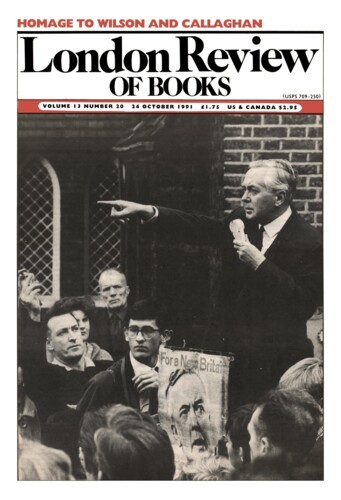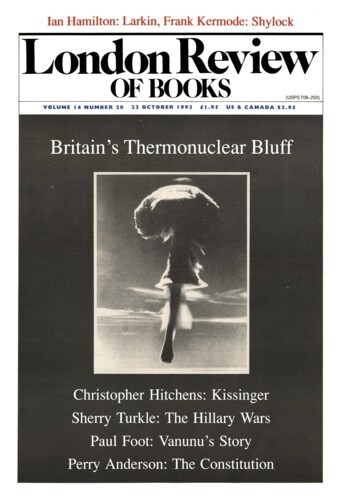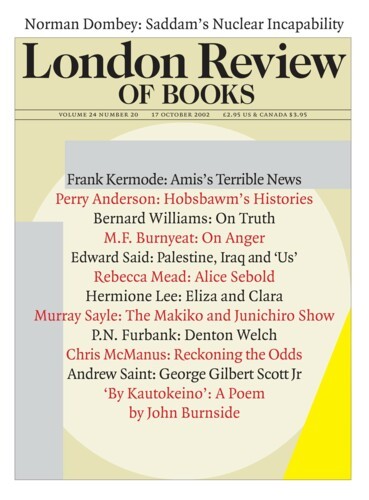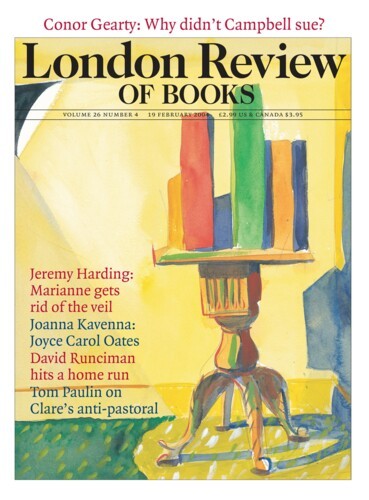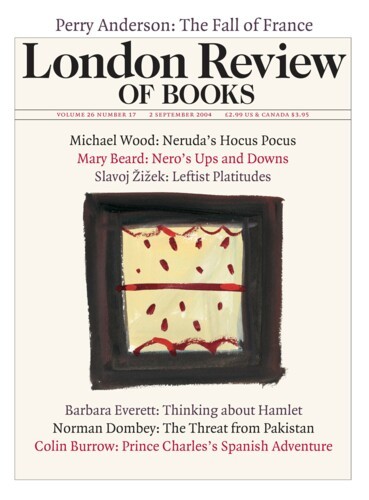Arms and Saddam
Norman Dombey, 24 October 1991
‘I have very high confidence that those nuclear reactors have been thoroughly damaged and will not be effective for quite some number of years,’ General Norman Schwarzkopf said on US television on 20 January, four days after the beginning of the air war in support of the liberation of Kuwait. Iraq’s ability to build nuclear weapons, he stressed, was at an end. The reactors in question were two small research reactors based at the Centre for Nuclear Research in Tuwaitha, about fifteen miles south-east of Baghdad. They had been supplied, equipped and supervised by the USSR and France, were used for research in physics, chemistry and medicine, with results that were published in the open scientific literature, and had been inspected by the International Atomic Energy Agency (IAEA) under the terms of the Nuclear Non-Proliferation Treaty, to which Iraq is a party. The inspections took place at six-month intervals and the last inspection had been in November 1990. After that inspection the IAEA reported that there was no evidence of any diversion of nuclear materials from civil use.
